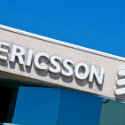
Ericsson has attended meetings of the ORAN Alliance and is now considering a more formal relationship with the operator-led group, which is widely seen as a challenge to the vendor's business model. The move could be a sign Ericsson is either bowing to new customer demands or trying to get a better look at a potential threat.
Formed in early 2018, the ORAN Alliance is pushing for technical changes that would allow operators to buy radio equipment from multiple vendors. Currently, the proprietary nature of interfaces used in the radio access network (RAN) locks service providers into one vendor's system, say ORAN Alliance spokespeople. (See Major Telcos Pool Efforts to Slash 5G RAN Costs.)
In an email sent to Light Reading, Ericsson AB (Nasdaq: ERIC) confirmed its involvement with the ORAN Alliance in response to a query about its membership status.
"We have engaged and participated in ORAN Alliance meetings. However, we are currently not an ORAN Alliance member," said the company. "Ericsson supports and aims to drive and actively engage in the discussions around future RAN architectures and open interfaces. We see ORAN as an important alliance that creates an arena for these discussions and we're evaluating how we can best contribute to this alliance."
The status quo would appear to suit Ericsson, Huawei Technologies Co. Ltd. and Nokia Corp. (NYSE: NOK), which collectively dominate the market for RAN equipment and services, by forcing operators to use those vendors or their partners. A more open RAN could lead to more competition and threaten sales of radio gear.
Yet Ericsson's involvement with the ORAN Alliance does not come as a total surprise. Nokia was already a member of the xRAN Forum, one of two groups that merged to form the ORAN Alliance earlier this year (the other being the C-RAN Alliance). Industry pressure for more open interfaces proved too much for Nokia to resist, say market observers. With most big international operators behind the ORAN Alliance, Ericsson may have started to feel the same way. (See Why Resistance to the Open RAN May Crumble.)
To others, Nokia and now Ericsson might simply prefer to monitor a potential challenge from the inside, instead of distancing themselves from it entirely. Nokia, they point out, is also a member of the Telecom Infra Project (TIP), a Facebook-led initiative with similar objectives to the ORAN Alliance, even if the Finnish vendor does not appear to be contributing in a meaningful way to any of TIP's working groups.
More charitable commentators believe the open RAN could present an opportunity for Ericsson and Nokia to innovate and address new customer needs.
This was certainly how Ericsson explained its recent activities. "As always, we are in continuous contact with our operator customers and other stakeholders in the industry, including the ones currently associated with the ORAN Alliance, to make sure we continue to create the right products that make operators successful in their markets and satisfy the needs of their end users in the best way possible," the company said in the comments it emailed to Light Reading.
The update comes after indications this week that TIP and the ORAN Alliance are on the verge of combining their RAN efforts. Such a tie-up would not only provide a major spur to the development of an open RAN ecosystem but could also help to address concern about the duplication of effort by different industry groups.
Spain's Telefónica and UK-based Vodafone Group plc (NYSE: VOD) are leading trials of open RAN technology and are likely to use the technology specifications recently finalized by the ORAN Alliance, said Axel Clauberg, TIP's chairman and a technology executive with Germany's Deutsche Telekom, during a conversation with Light Reading. (See TIP, ORAN Alliance Poised to Join Forces on Open RAN.)
For all the latest news from the wireless networking and services sector, check out our dedicated Mobile content channel here on Light Reading.
Ericsson's membership of the ORAN Alliance would potentially be of huge significance, leaving China's Huawei as the only big kit vendor on the outside of the group.
One industry executive whose company is an open RAN advocate thinks Ericsson will ultimately have to join. "In the long term, architecturally, I don't think they will have any choice," said David Hall, the European vice president of technology solutions for software specialist Mavenir.
"I think the incumbents will have to differentiate themselves in new ways but of course they have advantages because they have been developing radio solutions for a long time," said Hall. "They have a lot of installed base and you don't cut off your nose to spite your face. You will sweat that asset while you develop a long-term strategy."
But not everyone is convinced the incumbents face an imminent threat. Despite the efforts of TIP and the ORAN Alliance, telcos have been notoriously slow to adapt to new technologies and working practices, and their senior executives may resist switching from a large, trusted supplier to a relatively small, unproven one. (See Has TIP Made Networks Sexy to VCs?)
Moreover, while telcos are drawn to open RAN technologies by the promise of lower costs and greater efficiency, replacing one big vendor with a multitude of smaller ones could have the opposite effect by creating operational complexity. Many operators also lack the systems integration expertise to pull different technologies together. Relying on an outside party as a systems integrator would only add to the costs.
— Iain Morris, International Editor, Light Reading
Read more about:
EuropeAbout the Author(s)
You May Also Like




_International_Software_Products.jpeg?width=300&auto=webp&quality=80&disable=upscale)







